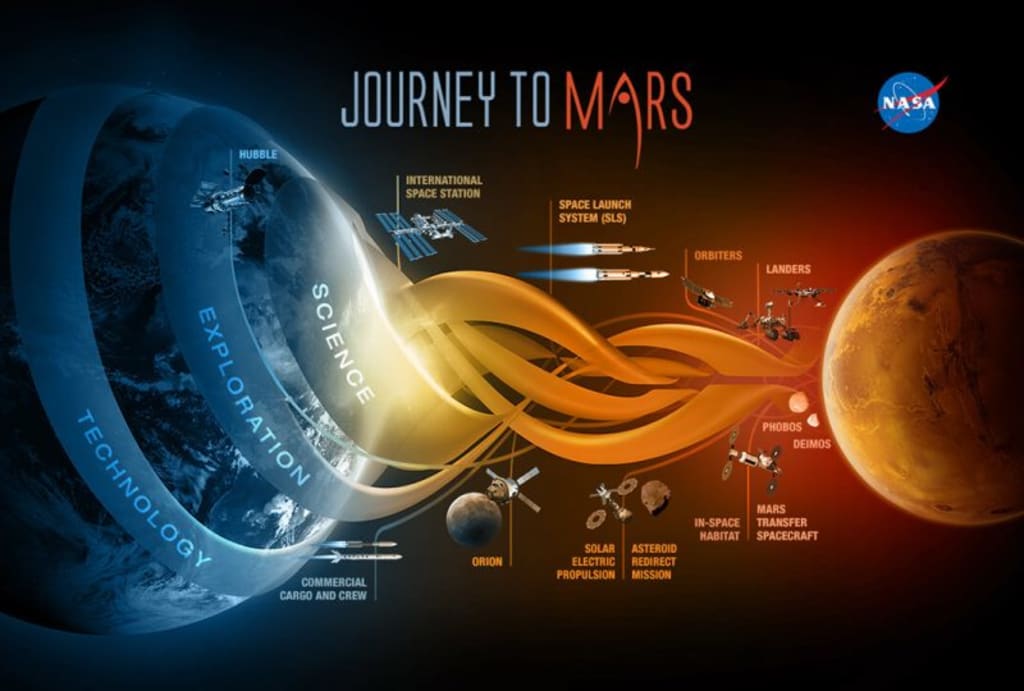
Space exploration has long captivated the human imagination. It represents our innate curiosity to venture into the unknown, to understand the cosmos, and to push the boundaries of what is possible. Over the years, space missions have yielded invaluable scientific discoveries, technological advancements, and a deeper understanding of our place in the universe. In this article, we will delve into the fascinating world of space exploration and missions, examining their history, significance, and what the future holds for humanity among the stars.
The history of space exploration is filled with milestones that have shaped our understanding of space and our capabilities to explore it. It all began with the launch of Sputnik 1 by the Soviet Union in 1957, marking the dawn of the space age. This spherical satellite not only heralded the beginning of the space race but also paved the way for subsequent missions.
The Apollo program, initiated by NASA in the 1960s, remains one of the most iconic space exploration endeavors to date. Apollo 11, with astronauts Neil Armstrong and Buzz Aldrin, became the first mission to successfully land humans on the moon in 1969. This historic event was watched by millions around the world and signified a giant leap in human achievement.
Beyond the Moon, missions like the Voyager probes, launched in the late 1970s, have provided us with a wealth of information about the outer planets of our solar system. Voyager 1, in particular, has ventured into interstellar space, making it the farthest human-made object from Earth.
Space exploration carries immense significance on multiple fronts. First and foremost, it satisfies our innate curiosity. Humans have always been explorers, and space provides the ultimate frontier. It allows us to answer fundamental questions about the origins of our universe, the possibility of life beyond Earth, and the potential for future human colonization of other planets.
Scientifically, space missions have expanded our knowledge of the cosmos. Telescopes like the Hubble Space Telescope have provided breathtaking images and insights into distant galaxies, stars, and planets. Robotic missions to Mars, such as the Mars rovers, have uncovered evidence of ancient water and the potential for microbial life, igniting excitement about the possibility of life beyond Earth.
Space exploration also drives technological advancement. Many of the technologies developed for space missions have found applications on Earth, from satellite communications to medical advancements. The pursuit of safe and efficient space travel has led to innovations that benefit society as a whole.
In recent years, space exploration has witnessed a shift towards international cooperation. Programs like the International Space Station (ISS) exemplify the collaborative efforts of multiple countries to advance scientific research and human presence in space. The ISS has served as a microgravity laboratory, fostering scientific discoveries in various fields, including biology, physics, and materials science.
Moreover, international partnerships extend beyond Earth's orbit. The Artemis program, led by NASA, aims to return humans to the moon, with plans to establish a sustainable lunar presence. This endeavor seeks to involve not only NASA but also international space agencies, fostering global collaboration and resource sharing.
The future of space exploration is brimming with possibilities. One of the most exciting prospects is the exploration of Mars. NASA's Perseverance rover, which landed on Mars in 2021, is conducting groundbreaking research and paving the way for future human missions. SpaceX, led by Elon Musk, has ambitious plans to establish a colony on the Red Planet, envisioning a multi-planetary future for humanity.
Advancements in propulsion technologies, such as ion drives and nuclear propulsion, are expected to reduce travel times to distant destinations, making missions to Mars and beyond more feasible. Private space companies like SpaceX, Blue Origin, and Virgin Galactic are driving innovation and competition, potentially opening up access to space for more people.
The search for extraterrestrial life remains a top priority in space exploration. Missions like the James Webb Space Telescope, set to launch soon, will study the atmospheres of exoplanets, offering tantalizing glimpses into potentially habitable worlds. The discovery of microbial life on Mars or evidence of life elsewhere in the universe would be a groundbreaking revelation with profound implications.
While the future of space exploration is promising, it also presents challenges and ethical considerations. Space debris, generated by defunct satellites and rocket stages, poses a growing threat to spacecraft and the ISS. Mitigating this issue requires international cooperation and innovative solutions.
Additionally, the commercialization of space raises questions about resource exploitation and environmental impacts on celestial bodies. Striking a balance between advancing human interests in space and preserving the integrity of otherworldly environments is a complex ethical dilemma.
Space exploration and missions have played a pivotal role in expanding our horizons and advancing scientific knowledge. From the moon landings of the Apollo era to the quest for life on Mars and the exploration of distant galaxies, our journey into space continues to inspire awe and wonder.
The future of space exploration holds tremendous promise, with the potential for human colonization of other planets, the discovery of extraterrestrial life, and the development of groundbreaking technologies. However, it also presents challenges that require responsible stewardship and international cooperation. As we continue our exploration of the cosmos, we must remain mindful of the ethical considerations and environmental responsibilities that come with our endeavors among the stars. Space is the final frontier, and it is up to humanity to explore it with curiosity, collaboration, and a commitment to the betterment of our planet and our species.






Comments
There are no comments for this story
Be the first to respond and start the conversation.